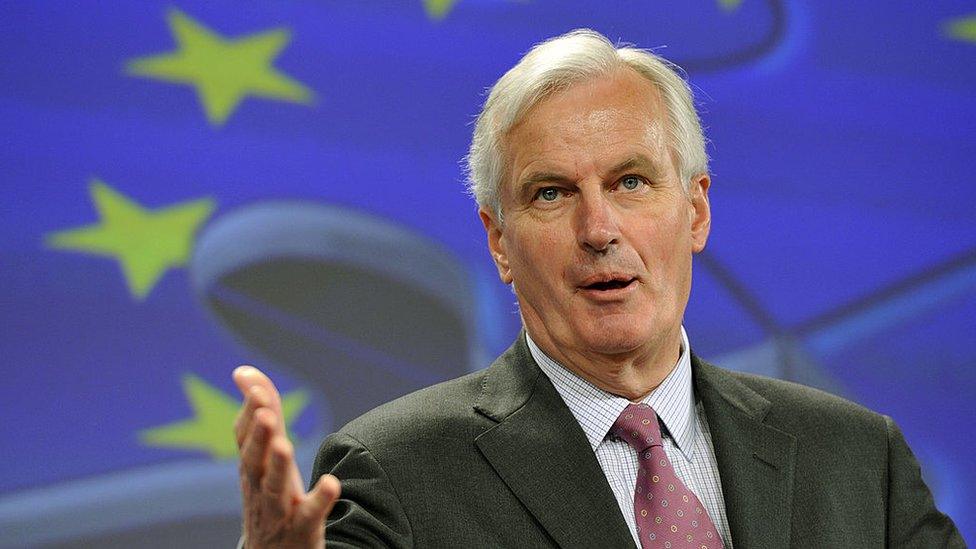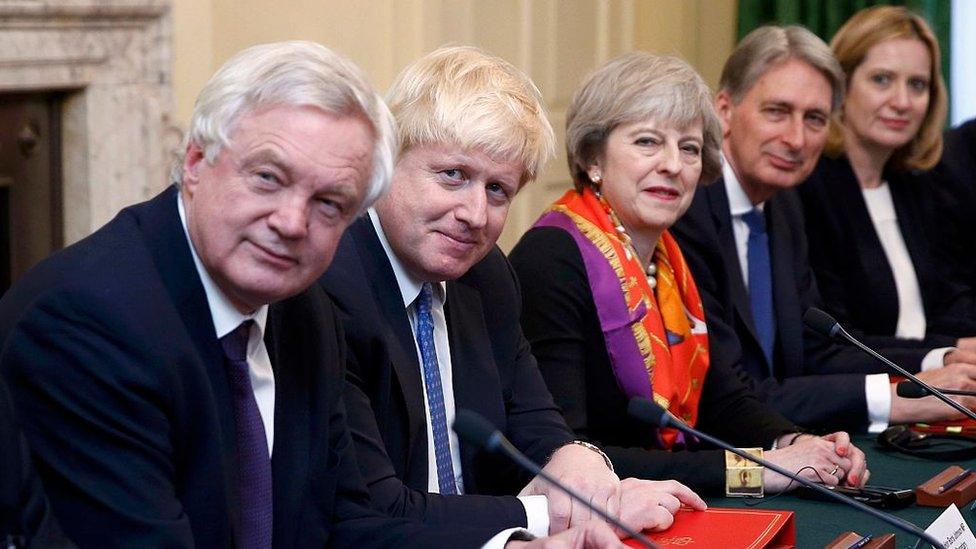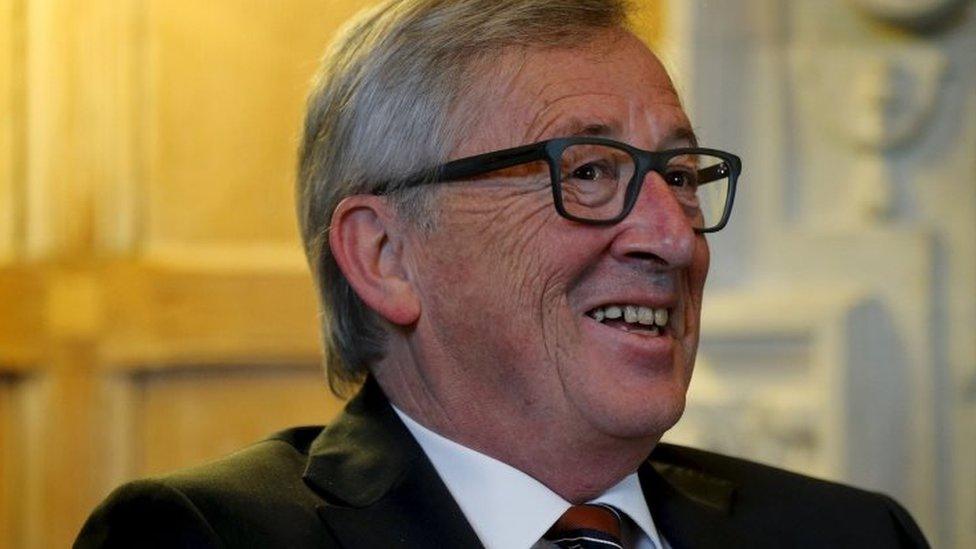Brexit: Early financial settlement won't be 'forced on UK'
- Published
- comments

Michel Barnier is leading the EU's Brexit negotiating team
The UK has been told it will not have to agree the exact sum of its financial exit settlement in the early stages after Article 50 has been triggered, BBC Newsnight has learned.
A message has been passed through informal channels from EU chief Brexit negotiator Michel Barnier to top figures in David Davis's department.
The UK would first have to agree the broad principles of the payment.
The principles for EU citizens in the UK would then have to be agreed.
Once these two principles have been agreed - on the financial settlement payment and EU citizens - Mr Barnier is prepared to open up the negotiations to cover all areas and the nature of the UK's future relations with the EU.
This would meet the UK demand for the negotiations on the UK's future trade deal with the EU to be discussed in parallel with the Article 50 talks.
Prime Minister Theresa May will trigger Article 50 - which have to be concluded within two years - in the final week of March.
The exact sum of the divorce settlement would be agreed later in the negotiations. Amid reports that the UK could face a bill of between €34bn (£30bn) to €60bn (£52bn), Mr Barnier is saying the exact sum will be determined on the EU side by the EU's Court of Auditors towards the end of the two year negotiations.
The ballpark in Brussels is that the EU has liabilities of around €600bn (£520bn). The UK would be responsible for around 12% of that, producing a rough figure of €60bn (£52bn).

Former Finnish prime minister, Alex Stubb, who recently met Barnier, explained the thinking in Brussels to BBC Newsnight.
Mr Stubb said: "Basically what's going to happen is that Article 50 is triggered and a few key principles will be agreed - say the principles of finance or the principles for EU citizens and British citizens in Europe - the big things. And then at the same time in parallel you can start negotiations on a future relationship."
Mr Barnier is telling the UK that the main principle of the financial settlement is that the UK will have to honour the legal commitments it made as a full member of the EU.
The key element will be the cohesion fund which is used to pay for infrastructure projects in deprived parts of the EU.
This accounts for around a third of the EU budget which lasts until 31 December 2020. All cohesion funding has been agreed for the current seven year budget and the UK would be expected to honour the commitments it gave when the current seven year EU budget was agreed by David Cameron in 2013.
The UK will not be responsible for its full share of the budget up until 2020 because the EU agrees on large parts of the seven year budget on an annual basis.
Any commitments agreed once the UK has triggered Article 50 will not have to be funded by the UK.
Mr Barnier will also table what are described as "standing commitments" in Brussels made by all member states.
These cover two key areas:
The €200bn (£175bn) so-called "reste a liquider", or RAL - effectively the EU's deficit. The EU is not allowed to run a deficit so it rolls over payments from one budget to the next.
The EU's pension liabilities for officials past and present of between €50-60bn (£34bn-£52bn).
Nicholas Watt is political editor for BBC Newsnight
- Published22 February 2017
